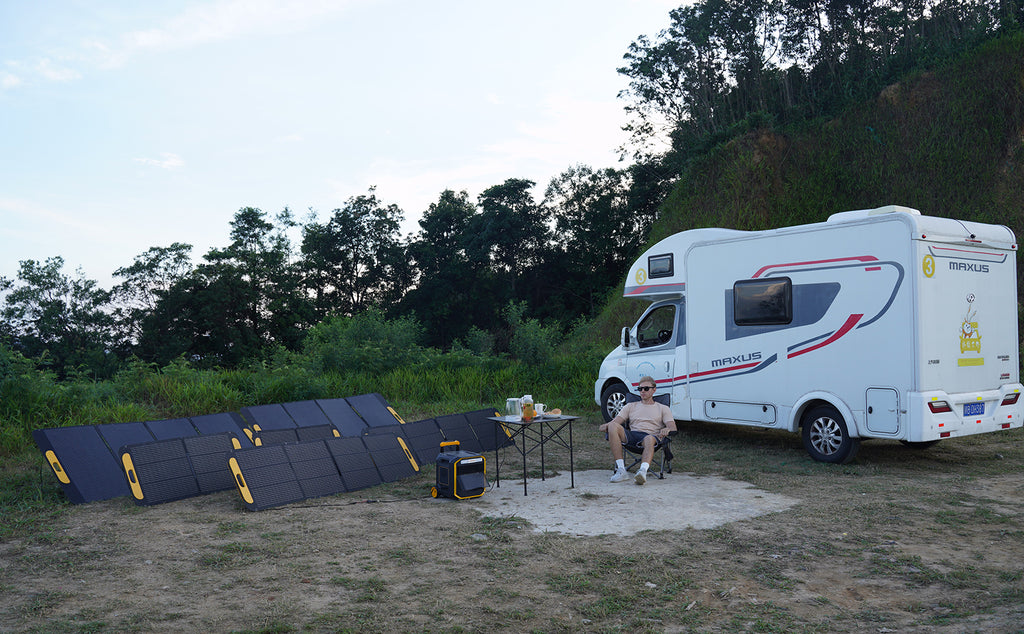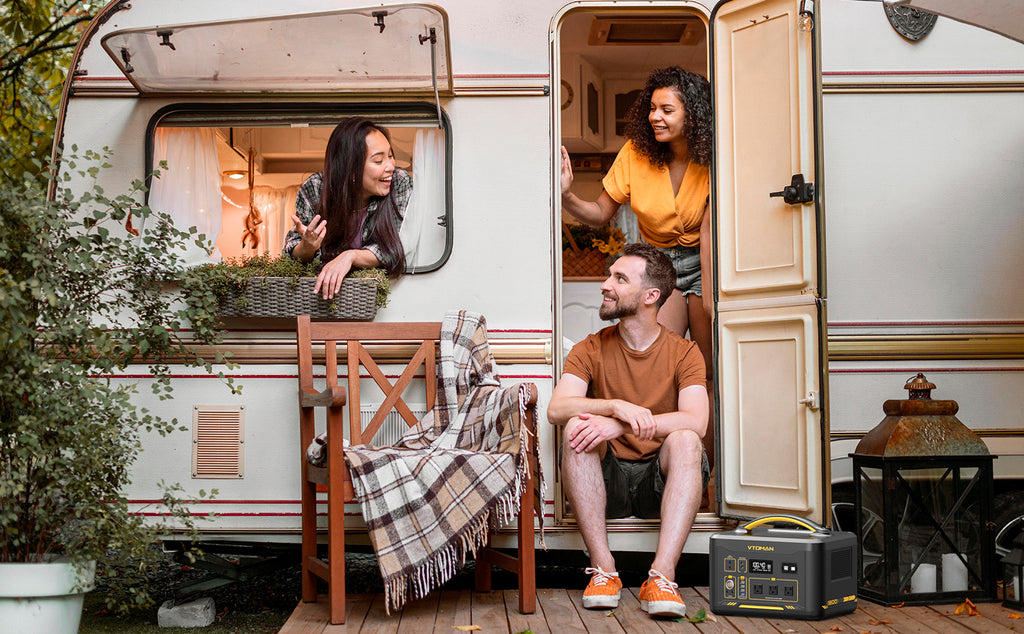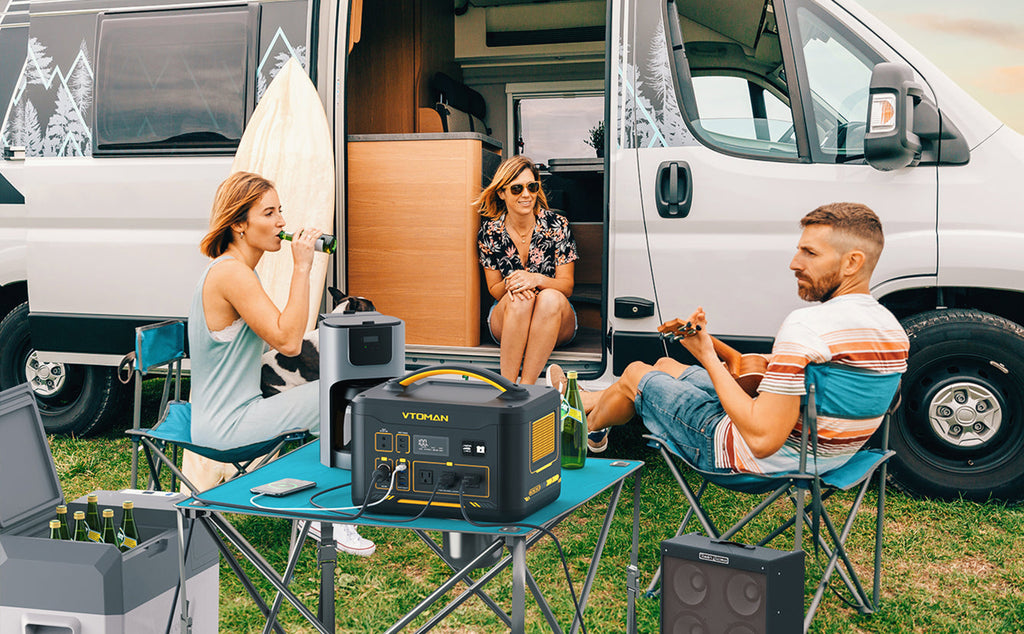Quick Answer: Living in an RV is generally cheaper than living in a traditional house in the US due to lower housing costs, no property taxes, and reduced utility bills.
Deciding between living in a recreational vehicle (RV) or a traditional house in the United States requires weighing several factors beyond just initial cost or aesthetic appeal. Each lifestyle offers distinct advantages and challenges, influencing overall living expenses, quality of life, and personal freedom.
We, in this article, explore the economic aspects of both living arrangements, aiming to provide a clear comparison to help individuals make informed decisions based on their preferences, lifestyle, and financial considerations.
Pros of Living in an RV
-
Flexibility and Freedom: The essence of RV living lies in its extraordinary capacity to offer freedom and flexibility unmatched by stationary living. It opens up a world where you're not tethered to one location, allowing for an exploration of diverse climates, communities, and landscapes at your own pace. This nomadic lifestyle is perfect for those who yearn for variety and the thrill of discovering new places.
-
Reduced Living Expenses: Financially, the RV lifestyle can be more lenient on your wallet. Without the burden of a mortgage, property taxes, and high utility bills that come with traditional homeownership or renting, the cost of living can significantly decrease. This economic advantage is bolstered by the ability to control and reduce expenses related to living space, leading to a more budget-friendly lifestyle.
-
Simpler Living: Living in an RV naturally promotes a minimalist approach to life. The limited space encourages residents to focus on essentials, shedding unnecessary possessions and the clutter they bring. This simplification of living space and possessions can lead to a more focused and less distracted lifestyle, emphasizing experiences over material goods.

Cons of Living in an RV
-
Limited Space: One of the most evident drawbacks of RV living is the constrained living area. Compared to the spaciousness offered by most traditional homes, an RV provides a compact environment that may prove challenging for those who require or are accustomed to more expansive living quarters. This limitation can be particularly pressing for larger families or those who entertain frequently.
-
Maintenance and Upkeep: The dream of hitting the open road in an RV comes with the reality of ongoing maintenance and potential repairs. RVs, especially older models, are prone to wear and tear that can necessitate costly fixes. Regular upkeep is essential to ensure the vehicle remains safe and functional, which can add an unexpected financial burden over time.
-
Weather and Security Concerns: The adventurous spirit of RV living is sometimes tested by nature's elements and security issues. Extreme weather conditions, from scorching heat waves to freezing blizzards, can impact the comfort and safety of RV dwellers. Additionally, living in an RV may involve varying levels of security compared to a fixed home, with concerns ranging from personal safety to the security of possessions, especially in less populated or remote areas.

What Is the Cost of Living in an RV Full Time?
The cost of full-time RV living varies widely depending on factors such as the type of RV, maintenance, park fees, and lifestyle choices. On average, monthly expenses can range from $1,400 to $3,000, covering campground fees ($500 to $1,500), utilities and connectivity ($100 to $300), maintenance and insurance ($200 to $600), and miscellaneous expenses including food, fuel, and entertainment. Choosing boondocking or free camping sites can significantly reduce these costs, although it may require investing in self-sufficiency upgrades like solar panels.
What Is the Cost of Living in a House in the US?
The cost of living in a house in the U.S. varies by location, size, and lifestyle but is generally higher than living in an RV. The average monthly mortgage payment is about $1,500, but when adding utilities ($200 to $400), property taxes, maintenance, and insurance, the total can easily surpass $2,000 to $3,000 monthly. Urban areas and popular locations can see significantly higher costs, not accounting for the initial down payment and home furnishings.
Who May Consider Full-Time RV Living
-
Adventurers and Freedom-Seekers: Individuals or couples drawn to the idea of exploring new destinations, experiencing diverse cultures, and waking up to different vistas will find RV living aligns perfectly with their desire for continuous adventure and change.
-
Minimalists and Budget-Conscious Individuals: Those who wish to downsize their living space and possessions, reducing living expenses in the process, will appreciate the simplicity and cost-effectiveness of RV living. It offers a way to live more with less, focusing on experiences over accumulating material goods.
-
Remote Workers and Retirees: With the rise of remote work, individuals who are not anchored to a specific location for employment, as well as retirees looking for a change of pace in their golden years, can benefit from the mobility and flexibility offered by full-time RV living. It allows for a seamless blend of work and leisure, providing the freedom to travel without sacrificing income or comfort.
And Who May Consider House Living in the US
-
Families Seeking Stability: For families with children, the need for a stable, secure, and spacious environment is paramount. A house provides a consistent setting for children to grow, learn, and play, with access to community resources like schools, parks, and extracurricular activities.
-
Investment-Oriented Individuals: Those looking at long-term financial investments may prefer the traditional route of owning a house. Real estate can be a valuable asset that appreciates over time, offering potential returns on investment through property value growth and rental income opportunities.
-
Community and Security Enthusiasts: Individuals who value being part of a community, with the added benefits of stationary home security and the sense of belonging that comes with neighborhood life, will find house living more suited to their preferences. A fixed address also provides a sense of permanence and roots that many people crave.
Must-Haves for Full-Time RV Living
To thrive in the full-time RV lifestyle, certain essentials can make the experience more enjoyable and sustainable:
-
A Reliable RV: The foundation of a successful full-time RV life is a dependable vehicle. Opt for a model that not only fits your spatial needs but is also reputable for its durability and longevity. Consider the layout, storage solutions, and overall build quality to ensure a comfortable living space.
-
Portable Solar Generator: Embrace the power of renewable energy with a portable solar generator. The Jump 1800W/1548Wh 220W Solar Generator revolutionizes off-grid living for RV enthusiasts, delivering an 1800W AC Pure Sine Wave output with a peak of 3600W, ensuring reliable power for all your needs. Its substantial 1548Wh capacity, coupled with the durability of a LiFePO4 battery that boasts 3100+ life cycles to 80%, makes it an indispensable tool for those seeking independence from campground utilities. With 12 outputs for charging multiple devices, a versatile jump starter for 9L gas or 7L diesel engines, and three charging modes (Wall, Solar, Car), this generator is not only safe and reliable but also emphasizes cost-efficiency and sustainability. The inclusion of a 12W LED light adds to its utility, making the Jump solar generator a cornerstone of sustainable RV living, offering the freedom to explore remote locations without compromising on power or environmental responsibility.

-
Internet Connectivity Solutions: Staying connected is crucial, especially for remote workers, digital nomads, and those who keep in touch with family and friends. A reliable internet setup, be it through mobile Wi-Fi routers or satellite internet services, ensures that you can work, entertain, and communicate from anywhere.
-
Water Filtration System: Clean water is a must-have on the road. A robust water filtration system guarantees access to safe drinking water, which is crucial for health and well-being, especially when boondocking or staying in areas with questionable water quality.
- Emergency Kit and Tools: Preparedness is key for a smooth RV living experience. Equip your RV with an emergency kit that includes first aid supplies, essential tools for minor repairs, and spare parts for common issues. This proactive approach can save time, money, and stress, ensuring you're ready for whatever the road throws your way.
By carefully considering these essentials, individuals can make informed decisions about whether full-time RV living or house living aligns with their lifestyle goals and needs.
Final Words
Choosing between RV living and house living in the U.S. hinges on personal preferences, lifestyle, and financial considerations. While RV living offers unparalleled freedom and potentially lower costs, it comes with its own set of challenges, such as space limitations and maintenance concerns. House living, on the other hand, provides stability, space, and the potential for property value appreciation but at a higher ongoing cost. Ultimately, the decision should align with your long-term goals, desired lifestyle, and financial capacity, ensuring a fulfilling living experience.












